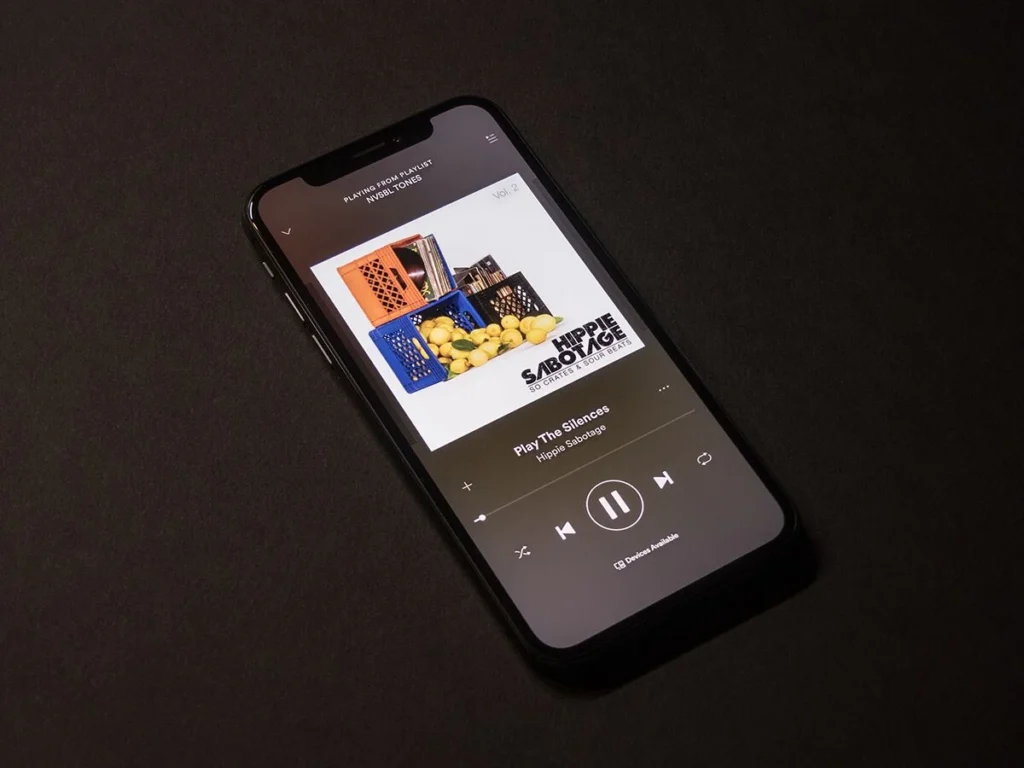Are you someone who can’t imagine going through a day without music? If so, you’ve probably experienced the joy of stumbling upon the perfect playlist that perfectly matches your mood or enhances a particular activity. Behind the scenes, there’s an art to curating the perfect playlist that goes beyond simply compiling a list of songs. In this article, we’ll delve into the process of playlist curation, exploring the techniques and considerations involved in creating a playlist that resonates with its intended audience. So, grab your headphones and let’s dive into the fascinating world of playlist creation!
Playlists have become an integral part of our lives, shaping our moods and enhancing various activities. Whether you’re looking for an energetic workout session, a relaxing evening, or an upbeat road trip, the right playlist can set the perfect ambiance. But have you ever wondered how these playlists are created? Let’s take a behind-the-scenes look into the world of playlist curation and discover the secrets behind crafting the perfect musical journey.
Understanding Your Audience: Know Thy Listeners
To curate a playlist that truly resonates with its intended audience, it’s crucial to understand their preferences, interests, and demographics. Are they young and energetic? Do they prefer a specific genre or era of music? By conducting thorough research and analyzing data, playlist curators can gain valuable insights into their target audience’s musical tastes and create playlists tailored to their preferences.
Setting the Tone: Selecting a Theme
A well-curated playlist tells a story or sets a specific mood. Choosing a theme can help guide the selection of songs and create a cohesive listening experience. Whether it’s a genre-specific playlist like “Throwback 90s Hits” or a mood-based playlist such as “Chill Vibes for Relaxation,” a theme provides a framework for selecting songs that complement each other and engage the listener.
Variety and Flow: Crafting a Seamless Experience

A great playlist offers a balance between familiarity and surprise. It incorporates a variety of songs that keep the listener engaged while maintaining a coherent flow. Skilled playlist curators carefully arrange songs to create transitions that feel seamless, avoiding abrupt shifts in genre or mood. The goal is to take the listener on a musical journey that is both enjoyable and captivating.
The Art of Transition: Mixing and Crossfading
One aspect that separates a well-curated playlist from a random compilation of songs is the art of transition. Smooth mixing and crossfading between tracks create a sense of continuity, making the playlist feel like a unified piece of art. These transitions can enhance the listening experience, preventing jarring interruptions and maintaining a consistent rhythm.
Balancing Familiarity and Discovery: Choosing the Right Songs
When curating a playlist, striking a balance between familiar and new songs is essential. Including popular and well-loved tracks ensures that listeners can connect with the playlist emotionally. At the same time, introducing lesser-known or emerging artists can spark curiosity and provide an opportunity for musical discovery. The key is to offer a blend of comfort and exploration to keep the listener engaged.
Length and Structure: Determining Playlist Duration
Playlist length and structure play a significant role in user engagement. Depending on the intended purpose of the playlist, its duration can vary. For example, a workout playlist might be shorter and more intense, while a background music playlist for a dinner party might be longer and more relaxed. Playlist curators consider the context in which the playlist will be used and tailor its duration and structure accordingly.
Engaging the Senses: Cover Art and Descriptions
Visual elements can enhance the appeal of a playlist. Playlist curators pay attention to cover art selection, creating visuals that reflect the mood, theme, or genre of the playlist. Additionally, engaging descriptions can provide context and intrigue listeners, enticing them to explore the playlist further. These sensory elements contribute to a more immersive and captivating listening experience.
Collaborative Playlists: Harnessing the Power of Community
Collaborative playlists have gained popularity in recent years, allowing users to contribute their favorite songs and engage with others. These playlists tap into the power of community, enabling a collective music discovery experience. Playlist curators can leverage user-generated content, encouraging listeners to actively participate and contribute to the playlist’s evolution.
The Role of Algorithms: Data-Driven Recommendations
In the digital age, algorithms have become essential tools in playlist curation. Streaming platforms like Spotify and Apple Music utilize user data and algorithms to provide personalized recommendations. These recommendations are based on listening history, user preferences, and data analysis. Playlist curators can leverage these algorithms to discover new songs and create playlists tailored to individual listeners.
Curating for Different Platforms: Spotify, Apple Music, and More
Different streaming platforms have unique features and formats that playlist curators must consider. Spotify, Apple Music, and other platforms offer various functionalities such as collaborative playlists, mood-based recommendations, and personalized playlists. Understanding the strengths and limitations of each platform allows curators to optimize their playlists for maximum impact on the respective platforms.
The Social Aspect: Sharing and Curating Playlists
Playlists are not just personal listening experiences; they also foster social connections. Sharing playlists with friends, family, or online communities can be a way to express one’s musical taste and engage in conversations about music. Moreover, playlist curators often seek inspiration from other curators and actively participate in the curation community, exchanging ideas and discovering new songs.
Playlist Maintenance: Keeping Content Fresh
Maintaining a playlist’s relevance and freshness is an ongoing process. Playlist curators regularly update their playlists, adding new songs and removing outdated ones. This ensures that the playlist remains vibrant, reflects current musical trends, and continues to captivate listeners. By staying attentive to the evolving music scene, curators can provide an ever-evolving listening experience.
The Business of Playlists: Influencers and Brand Collaborations
Playlists have also become a valuable marketing tool for influencers and brands. Influencers curate playlists that align with their personal brand and engage their followers through shared musical experiences. Similarly, brands collaborate with playlist curators to create branded playlists that promote their products or services. These collaborations leverage the power of playlists to reach and connect with target audiences effectively.
Conclusion
Playlist curation is an art that combines creativity, understanding of the audience, and a passion for music. The process involves selecting the right songs, arranging themin a seamless flow, and considering factors such as theme, variety, and transitions. Skilled playlist curators strike a balance between familiarity and discovery, engage the senses through cover art and descriptions, and leverage the power of algorithms and community collaboration. They adapt their curation strategies to different streaming platforms and maintain playlists to keep them fresh and relevant. Playlists have evolved beyond personal listening experiences and have become a social and marketing tool. By understanding the intricacies of playlist curation, we can appreciate the thought and effort that goes into creating the perfect musical journey.




Leave a Reply